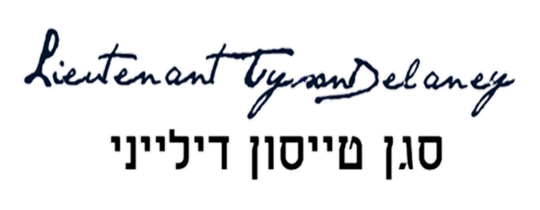He knows he’d a, relatively, handsome man. Adorably handsome. However, he can’t admit that and has convinced himself he isn’t, because admitting that would be admitting his father was. Tyson wants to demonise his father. The late John Delaney caused Tyson hell growing up and Tyson refuses to attach a positive word to the man, at the cost of his own self-image.
Tyson knows he had his father’s stubbornness and determination, mathematical gifts, quick wit, mild sentimentally, unorthodox moral compass, and love of strong, rich coffee; but he is terrified of becoming more like him.
Tyson doesn’t want to be as sadistic or ruthless as his father, he doesn’t want to become as short tempered as the deceased professor, he doesn’t want to be as cold or dismissive as his father, nor does he want to be as lonely as his father.
That said he wouldn’t mind inheriting his father’s charm, social graces, neat handwriting, and confidence.
As a boy, Tyson idolised his father. He thought the man could do no wrong, even as he took his belt to the back of Tyson and his brother. He learnt differently. Trust and love slowly chipped away, but never truly leaving. As he’s grown older, those thoughts have become more complicated.
If Tyson could ever take thirty seconds to stop blaming himself for all the universes problems, he might realise how his father’s influence led him to Sebastian and then later to the Moriarty Mirrors. That is a very unlikely possibility however.
So much of Tyson’s life has been about living up to or trying to spite his father. He’s shaped so much of his life around that it may, in fact, be impossible for him to move forward without leaning into one or the other.
Before leaving it pinned on the noticeboard in his bedroom, and before he wore it on his right middle finger, Tyson used to wear a ring bearing the Delaney family crest around a chain on his neck. At times it felt like an impossibly heavy noose. Locking him to his father’s expectations.
It’s a similar feeling to what Tyson feels when he thinks of his father.
Both of them regret how things went down between them.
Tyson was, without a doubt in anyone’s mind, John’s second favourite son, but in his way, he did love his son. He was willing to forgive - keyword forgive, not accept - his son for being gay, but John could never forgive Tyson for signing up to die in the army. For throwing away his life to a pointless war.
If he had known about Tyson’s involvement in the web, John could have forgiven that. He could have accepted his son’s - stupid, pointless, misguided - attempts to do right by minimising the bad and keeping another from being in his position when it comes to a criminal empire, but not the armed forces.
Much of John’s sentiments about war come from his own father, Lucas Delaney, who lived through WW1 and WW2 as the head of an incredibly prominent Jewish family. He lost his twin brother, Bruce, to the Blitz and his innocence to the wars; and along with any belief that his family would ever have to stop fighting for a place to be Jewish without fear.
His anti-war sentiment came from enlistment and knowing that, no matter what they may claim, his country hadn’t gone to war to protect his people. Even after the war ended and his two sons were born - with given boastfully, proud Jewish names: Reuben Boaz Delaney (רְאוּבֵן בֹּעַז דילייני) & Yonatan David Delaney (יוֹנָתָן דָּוִד דילייני) - Lucas never stopped campaigning against war and passed those thoughts on to his sons.
John’s mother and Tyson’s grandmother, Ellen Delaney, shared that sentiment, but she was far less outspoken about it. Almost fearfully silent, having immigrated to Britain to escape the war with her parents. John picked that up too and it’s what spurred him to be so vocal about it, to not let her pain be lost; unheard.
John and Tyson were both forged from fear and spite, and a stubborn determination to never buckle; to fight for what they believed in until their last breaths. They were both incredibly proud and protective of the family legacy.




